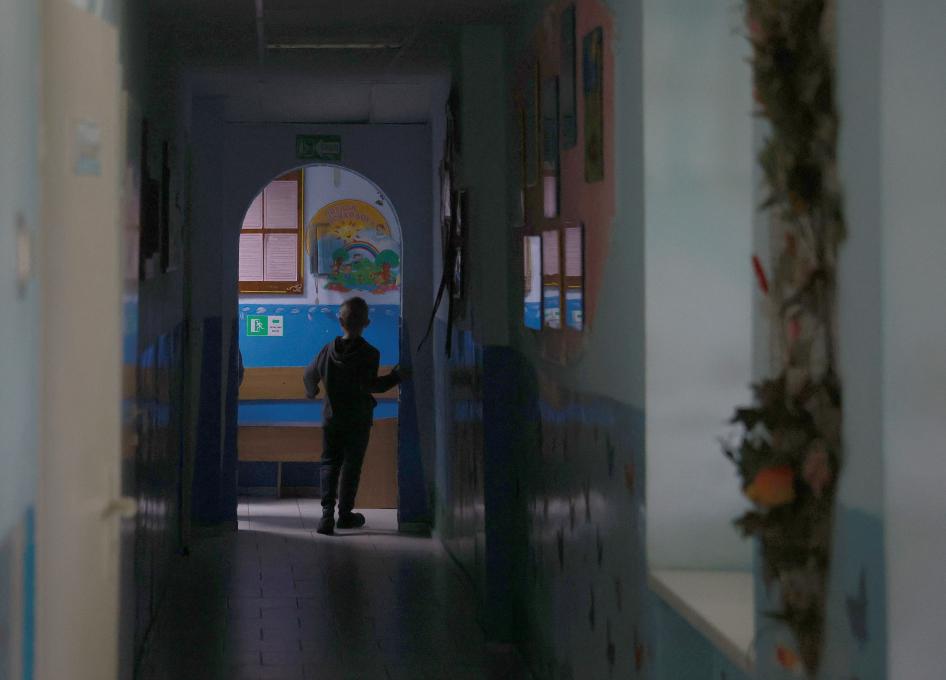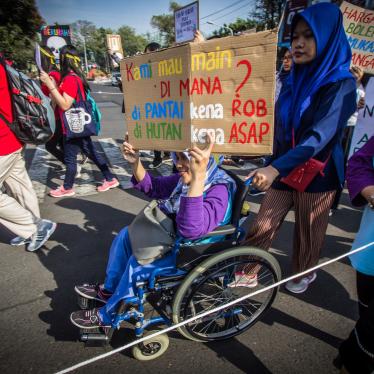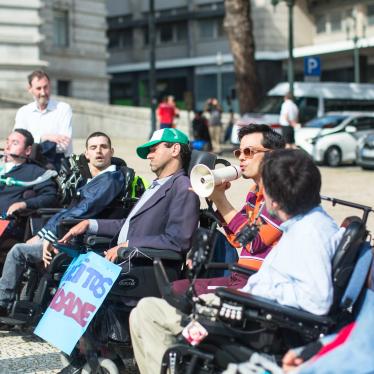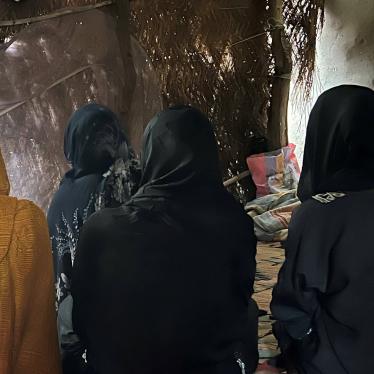As Russia’s war against Ukraine takes an enormous toll on civilians, the European Commission has identified the rights of people with disabilities as one of the priorities for the country over the next 12 months as part of the European Union accession process.
The Commission’s report calls on the Ukrainian government to apply laws guaranteeing the rights of people with disabilities and make sure that all rebuilt infrastructure is accessible. This offers hope that people with disabilities in Ukraine won't be overlooked in the months and years ahead, as so often happens during and after an armed conflict.
The Commission also pointed out the alarming situation children, people with disabilities, and older people face in residential institutions, and urged the Ukrainian government to move children out of institutions. While a welcome step, Ukraine should go further by ending institutionalization and ensuring everyone, including people with disabilities and older people, can exercise their right to live in the community.
Under the UN Convention on the Rights of Persons with Disabilities, which Ukraine joined in 2010, people with disabilities have the right to live independently in the community and not be segregated in institutions, where they have no control over their lives and often face neglect or abuse. The Guidelines on deinstitutionalization, adopted by the UN expert body on disability rights in 2022, call on governments to “abolish all forms of institutionalization, end new placements in institutions, and refrain from investing in institutions.”
The Ukrainian government has an opportunity to take bold action to demonstrate its commitment to human rights and make sure people with disabilities are no longer locked away behind closed doors. It should work closely with local groups of people with disabilities to prevent abuse and remove barriers to their full inclusion in society. The EU and other international donors should also ensure any assistance they offer, including the EU’s additional financial package to Ukraine, doesn’t contribute to reconstructing or building new residential institutions, and instead supports the development of rights-respecting services in the community.
This is about doing away with the decades-old practice of locking up and shunning people with disabilities, and doing more to make sure they enjoy their fundamental rights and freedoms.
*This article is part of a series marking the 10th anniversary of Human Rights Watch's Disability Rights Division.










